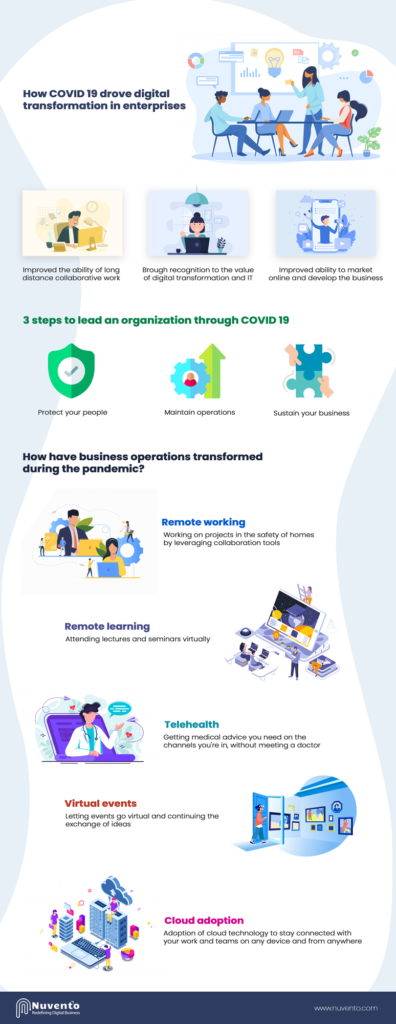Without any doubt we can say that the COVID-19 pandemic has added to unprecedented business crisis around the world, regardless of size, location, or funding. Remote working alone has resulted in such a large number of new difficulties, especially for organizations that are still in the earliest stages of their digital advancement. Staff need to access all the vital frameworks and information to carry out their responsibility, however worries around security mean this isn’t as straightforward as enabling remote access authorizations and giving workers an indirect access key. You have to know who’s getting to your frameworks, when, why, and what they’re doing. The main challenges faced by small businesses are:
- Small Businesses are Closing Their Doors
- Access to Capital
- To Adapt to the Ongoing Crisis
- Difficult Economic Circumstances faced by employees
- Remaining Optimistic & Resilient
COVID 19 introduced real problematic challenges for how organizations work as well. Despite the fact that 70% of organizations already had a digital transformation strategy set up, most were not completely ready for a crisis like COVID 19 that has constrained them to quick track their digital transformation to keep the business up.
Infographic – 
Source – https://nuvento.com/blog/is-covid-19-fast-tracking-digital-transformation-in-your-business/
Remote working
The idea to work from home is one that employees value, however most organizations don’t have the technology framework set up to offer that ability without an effect on business as usual. Circumstances like the one we are in now make digital transformation a basic for remaining pertinent in the market. Also, one can’t reject that organizations are presently realizing the advantages of transforming their processes.
In the long run, when we’re past this crisis, most workplaces may return to their regular inflexible work-in-office model. However, many may understand and realize their employees can do great work regardless of where they are and incorporate remote working plans as part of their employee policies.
Remote learning
With most campuses shut owing to the COVID 19 outbreak, numerous colleges have chosen to utilize virtual learning strategies to finish the syllabus for the remaining academic period. In spite of the fact that numerous colleges have had encounters with virtual learning with tools like Harvard Business School Online, a dominant part of institutions are not actually prepared for this move.
Telehealth
There has been significant advancement made in telemedicine even before the COVID 19 outbreak, and now health authorities are pushing medical care frameworks to grow their telemedicine through smartphones and different tools.
Virtual events
While a few in-person conferences have been cancelled around the world, some are going ahead with them as virtual events.
Conferences are a significant stage to exchange thoughts and build proficient relationships and a few organizations are utilizing platforms that combine video, systems administration, teamwork and different abilities to overcome any issues between in-person events and virtual ones.
The cloud
The cloud has empowered instant correspondence from anywhere and has allowed businesses to quickly rotate their arrangements to satisfy the new need. Organizations that have migrated to the cloud have had the option to keep collaborating on projects, save jobs, help moderate the spread of the virus and permit businesses to keep a degree of routineness amid a chaotic circumstance.
Conclusion
In response to the pandemic, numerous organizations have made a step ahead in digital transformation. They have turned out tools that can uphold remote work for a short period by opting for preliminary versions of collaboration software for a low expense.
Author Bio – Ben is a technical writer at Nuvento. It’s a cloud migration consulting company in the US. He enjoys telling about tech innovations and digital ways to boost businesses.



